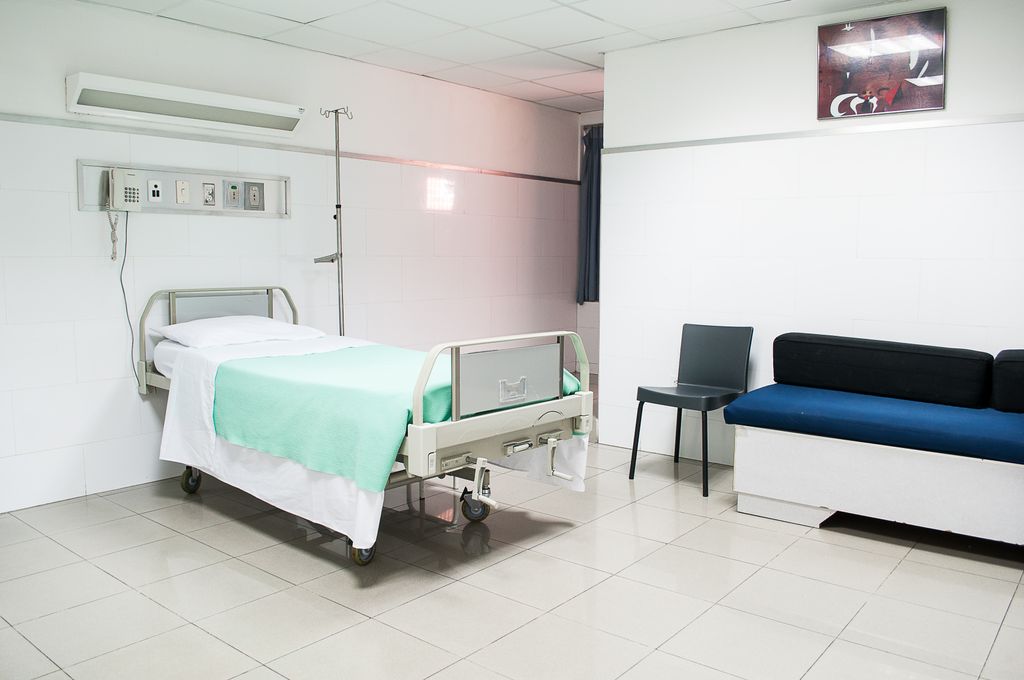Navigating non-payment in hospital equipment supplies can be a challenging task for healthcare providers and suppliers alike. From managing non-payment issues to negotiating payment terms and considering legal aspects, there are several hurdles to overcome in this complex landscape. In this article, we will explore key strategies for addressing non-payment issues in hospital equipment supplies.
Key Takeaways
- Communication and Transparency are Essential
- Establish Clear Payment Terms and Policies
- Seek Legal Advice When Necessary
- Maintain Documentation of All Transactions
- Build Strong Relationships with Reliable Partners
Challenges in Hospital Equipment Supplies
Managing Non-Payment Issues
In the realm of hospital equipment supplies, non-payment issues can significantly disrupt operations. Timely resolution is critical to maintain a steady flow of necessary tools and devices. Hospitals must employ strategic measures to mitigate these risks.
Communication is key. Establishing clear lines of dialogue between suppliers and hospital finance departments can preempt many potential conflicts. When issues arise, prompt and transparent discussions are essential.
- Identify the root cause of non-payment
- Engage in proactive problem-solving
- Implement flexible solutions
Effective management of non-payment issues requires a multifaceted approach, balancing firm policies with the need for compassion and understanding.
Legal recourse is an option, but often a last resort. It’s preferable to resolve disputes through negotiation and compromise, preserving professional relationships and ensuring continuity of supply.
Negotiating Payment Terms
Securing favorable payment terms is crucial for maintaining hospital operations while managing equipment costs. Early negotiations can prevent non-payment issues before they arise. Establish clear terms from the outset:
- Define payment schedules
- Agree on late payment penalties
- Set out dispute resolution mechanisms
Flexibility in payment terms can be a strategic advantage, allowing for adjustments in times of financial strain. However, ensure that any flexibility does not compromise the hospital’s financial stability.
It’s essential to balance the need for equipment with the hospital’s budget constraints. Effective negotiation protects both the supplier’s and the hospital’s interests.
Remember, the goal is to create a win-win situation where both parties feel secure in the transaction. A well-negotiated contract can be the difference between a smooth operation and a financial headache.
Legal Considerations
When navigating non-payment in hospital equipment supplies, legal considerations are paramount. Contracts must be clear and enforceable to protect both parties. It’s essential to understand the legal framework governing such agreements.
- Ensure compliance with state and federal laws.
- Seek legal counsel before drafting contracts.
- Understand the consequences of breach of contract.
Timely legal advice can prevent costly disputes and foster amicable resolutions.
Failure to adhere to legal standards can result in penalties, loss of reputation, and strained relationships with suppliers. Always prioritize legal due diligence in your payment negotiations.
Conclusion
In conclusion, navigating non-payment in hospital equipment supplies is a complex and challenging issue that requires careful consideration and proactive measures. It is essential for healthcare providers and suppliers to work together to find sustainable solutions that ensure the uninterrupted supply of critical equipment while maintaining financial stability. By addressing the root causes of non-payment, implementing transparent processes, and fostering open communication, the healthcare industry can mitigate the impact of non-payment and create a more resilient and sustainable supply chain for hospital equipment.
Frequently Asked Questions
What should I do if a hospital refuses to pay for equipment supplies?
If a hospital refuses to pay for equipment supplies, it’s important to first communicate with the hospital administration to understand the reason for non-payment. If the issue persists, consider seeking legal advice to explore your options.
How can I negotiate payment terms with hospitals?
Negotiating payment terms with hospitals can be done by clearly outlining the terms of payment, offering discounts for early payments, and establishing a payment schedule that works for both parties. It’s important to maintain open communication throughout the negotiation process.
What legal considerations should I keep in mind when dealing with non-payment issues?
When facing non-payment issues, it’s crucial to be aware of contract terms, payment deadlines, and the legal remedies available to address non-payment. Seeking legal counsel can provide guidance on the best course of action within the framework of contract law and commercial regulations.
How can I protect my hospital equipment supply business from non-payment risks?
To protect your hospital equipment supply business from non-payment risks, consider conducting thorough credit checks on potential hospital clients, implementing clear payment terms in contracts, and establishing a robust invoicing and collection process. Having a proactive approach to risk management can mitigate non-payment challenges.
What are the common reasons for non-payment by hospitals?
Non-payment by hospitals can stem from various reasons such as budget constraints, administrative errors, disputes over quality or quantity of supplies, and financial instability. Understanding the underlying reasons for non-payment can help in devising effective solutions to address the issue.
How can I maintain positive relationships with hospitals while addressing non-payment issues?
Maintaining positive relationships with hospitals while addressing non-payment issues involves transparent communication, willingness to find mutually beneficial solutions, and a focus on long-term partnership. Building trust and understanding each other’s challenges can contribute to resolving non-payment issues amicably.





